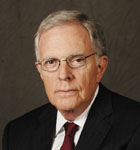At a Glance
Location
Wood Dale, IL
Founded
1974
Employees
50 corporate employees
Specialty
Disaster restoration
Annual Sales
$1 billion
Calamitous events such as tornadoes, fires, and tidal waves come swiftly and unexpectedly. Often, there’s no way to prepare; there are only ways to recover, to rebuild. In such times, the distressed and displaced call on Disaster Kleenup International (DKI), a collaborative business founded by a small group of insurance-restoration contractors looking for a way to network in their field. The organization now has more than 400 locations nationwide, and it’s finding new ways to care for customers while continuing to care for its own.
Ten years ago, DKI was at $360 million in system-wide revenue, and today it is over the $1 billion mark. This is partly because the disaster-restoration business has seen explosive growth in recent years, but it’s also thanks to the organization’s expanding membership, which itself is a result of the advantages DKI provides. Not just anyone can become part of the group: prospective contractors must have already achieved a level of success within the marketplace, and competition is fierce because, unlike McDonalds and Starbucks, DKI doesn’t want to have contractors on every corner. Contractors who are admitted, though, pay a membership fee and then a monthly fee, and in return DKI helps them with networking and marketing. “DKI offers independent contractors the ability to leverage all of the benefits associated with being part of a large national organization while maintaining their own identity,” CEO and president Dan Cassara says.
Top 5 Differences Between DKI Contractors and General Contractors
1. DKI contractors do hundreds—sometimes thousands—of jobs each year, taking calls at all times of day and night.
2. There are no blueprints for fixing disasters. Quick decisions are required, even when contractors don’t have complete information.
3. Insurance companies typically pay the contractor’s cost of repair.
4. DKI contractors are heroes. There is an emotional factor when working with personal belongings.
5. The industry is relatively recession-resistant. Accidents and weather-related disasters will happen despite a tough economy.
Tony Esla, owner of DKI Restotech, is one of the organization’s many success stories. His firm became part of DKI 11 years ago, and it grew from a $1.2 million to a $6 million company. “We were a small company and wanted to grow,” Esla says. “Through DKI, we’ve learned from other larger contractors how to organize our company and to get better. Being able to go into $20 to $30 million companies and see how they operate is tremendous. It gives you something to work toward.”
“Success like that is common for DKI companies,” Cassara adds. “They have access to the tools and are able to leverage the brand, allowing them to hit the market in a way they couldn’t previously.” For example, with its significant purchasing power, DKI provides cooperative purchasing opportunities for more than 300 contractors in North America. And, the organization established the DKI Procurement program to expose its contractors to high-quality products and services through procurement vendors such as Surface Shields.
DKI also implements programs to win clients before disaster strikes. Three years ago, the organization bought a disaster-planning company called Circumspex, designed to teach clients about proper preparedness. “We wanted to touch the customer prior to a loss or calamity by helping in the planning process,” Cassara says. “We can ensure when the unexpected happens [that] we are not only the company that helps them through it but [that] we were the company that helped them prepare.”
Additionally, DKI is currently the only national organization in the industry putting all its members through the Green Risk Professional certification program. And in the last two years, DKI member companies have participated in 44 builds around the country, including in tornado-ravaged Joplin, Missouri, for ABC’s Extreme Makeover: Home Edition.
“DKI restores much more than just the property,” Cassara says. “DKI restores hope for people who have been extremely affected by a disaster. From repairing a treasured heirloom to restoring precious documents, we are a company that people can count on to take care of them and their property.” ABQ



